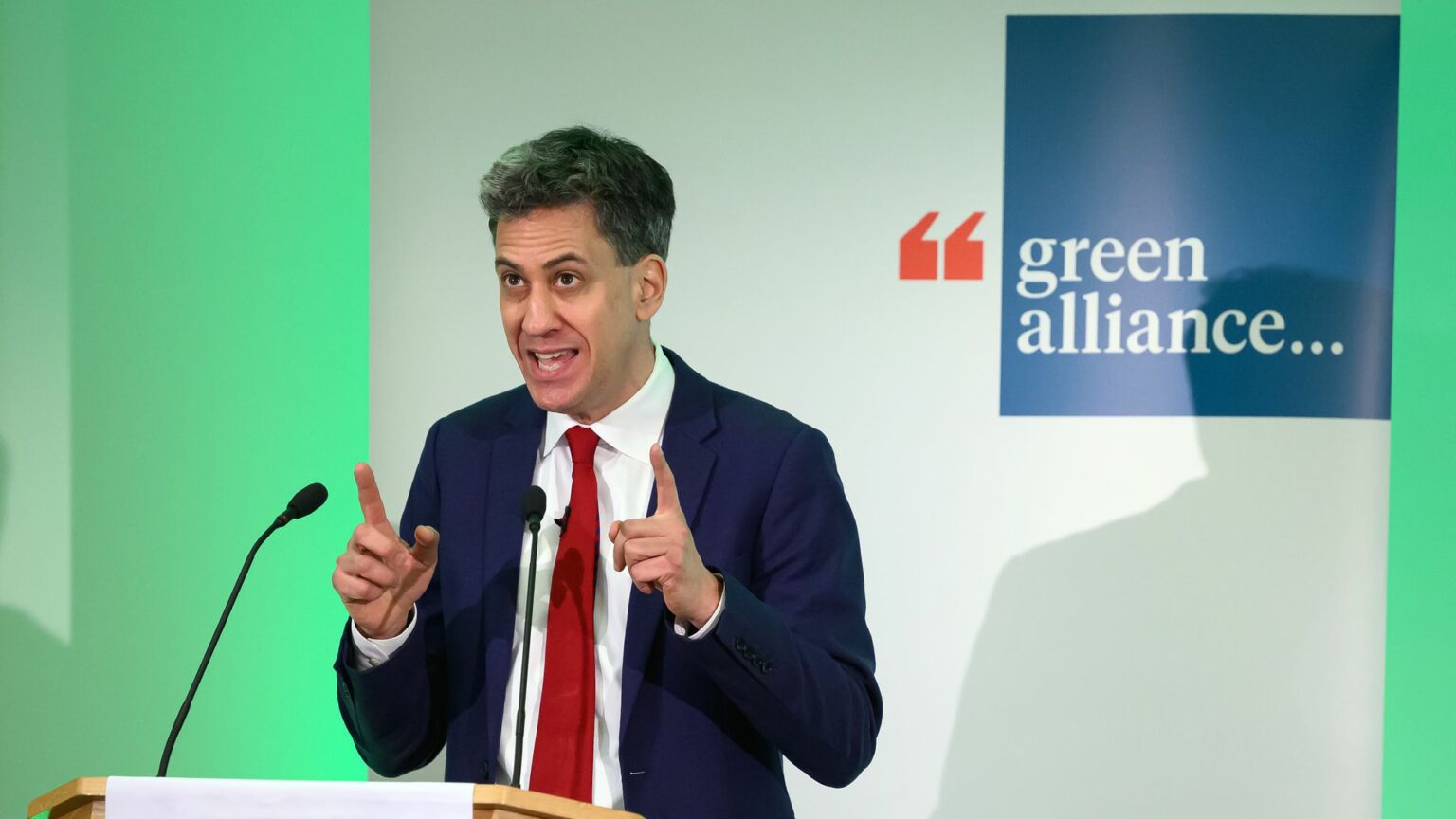How Net Zero will deepen the UK’s housing crisis
Ed Miliband’s green diktats could make it ruinously expensive to rent a home.

Want unlimited, ad-free access? Become a spiked supporter.
In the quiet corridors of Whitehall, a new financial guillotine is being sharpened. It is not aimed at the super rich or multinationals. Its target is far more prosaic: the pensioner in a draughty cottage in Cumbria, the young couple who have scraped together a deposit for a terraced house in Stoke, the landlord in Swansea who lets a spare room to make ends meet.
The guillotine is the Minimum Energy Performance of Buildings Bill, currently progressing through parliament. When it becomes legislation, it will impose a penalty of up to £30,000 on any domestic property that fails to reach Energy Performance Certificate (EPC) Band C by 2028.
The legislation is part of a broader push to decarbonise Britain’s housing stock by 2050, a target enshrined in the 2008 Climate Change Act and reaffirmed by successive governments. Yet the practical consequences of this ambition are only now becoming clear.
According to the House of Commons Library, 29million homes in the UK – approximately 60 per cent of the total stock – currently sit below EPC Band C. The average cost of upgrading a Band E property to Band C is between £13,000 and £28,000. For a retiree living on the state pension of £11,973 per year, such expenditure is not merely prohibitive, it is impossible.
The hypocrisy at the heart of Labour’s demand is difficult to overstate. Keir Starmer, for example, lives in a £2million townhouse in Kentish Town, north London. Its EPC rating is Band D. Yet the property is exempt from the minimum standard because it is in a conservation area, and so compliance would ‘unacceptably alter’ its character or appearance. This exemption applies to any listed building or property in a designated conservation zone. This creates a blatant two-tier system, in which those wealthy enough to live in heritage homes are shielded from the cost of EPC demands.
The propaganda is equally insidious. The Department for Energy Security and Net Zero describes the transition as a ‘fair’ and a ‘managed’ process that will ‘save households money in the long term’. The National Audit Office (NAO) tells a different story. Of the 23,000 homes treated under the government’s flagship insulation schemes, 98 per cent now require further intervention – so it is clearly not a ‘managed’ process. Nor, as it has been established, will the transition save money. It will instead be prohibitively expensive for the many people who would like to sell or rent properties that fall below EPC standards.
Landlords will soon face a stark choice. A retired teacher who rents a two-bedroom flat to supplement her pension might soon discover that her property is rated Band D. The cost of upgrading to Band C is from £5,000 to £8,000 – a cost she may not be able to bear. If she continues to let the property after 2028, she will be liable for a £30,000 penalty. The likely result is a forced exit from the rental market, reducing the supply of affordable housing at a time of chronic shortages.
The policy’s reach extends beyond those who let properties. Any homeowner who sells his home must provide a valid EPC. If the rating is below Band C and no exemptions apply, the sale cannot proceed until the necessary works are completed. For those inheriting a property, the burden falls on the estate. In each case, the £30,000 fine looms.
The government insists that energy efficiency saves money, yet the NAO data show that the vast majority of installations fail to deliver any savings. It claims that the transition is fair, yet the penalty regime disproportionately affects those least able to bear the cost. It promises a managed process, yet the infrastructure, installers and supply chains simply do not exist at the required scale.
The human cost of this policy will be devastating. Already, roughly 11 per cent of UK households live in fuel poverty. This is only going to rise nationally, as energy bills increase and retrofit costs escalate, exacerbated by the NAO’s findings of widespread insulation failures.
The Office for National Statistics reports that the median pensioner household has just £25,700 in liquid savings – less than the cost of a single retrofit upgrade and a fraction of the £30,000 maximum fine. For those in the bottom 10 per cent of earners, the same data show median financial wealth of just £5,000, barely enough for a month’s rent in many areas, and a mere sixth of that penalty.
Net Zero was sold to the public as a moral imperative, a necessary sacrifice to avert climate catastrophe. The reality is more mundane. It is a transfer of wealth from ordinary households to a narrow constituency of installers, consultants and policymakers who are insulated from the consequences of their decisions.
The question that remains is not whether the policy will fail – the NAO has already demonstrated that it is failing – but whether the public will accept the cost. Will the pensioner in the draughty cottage quietly pay the £30,000 fine, or will she refuse to comply and force the state to enforce its own absurdity? Will the young couple who have stretched to buy their first home accept a lifetime of debt to meet an unachievable clean-energy standard, or will they simply walk away from the property market altogether?
One thing is certain, this tax will be ruinous. The only question left is who will pay for it.
Simon Panter is a features writer at the Rational Forum on Substack.
You’ve hit your monthly free article limit.
Support spiked and get unlimited access.
Support spiked and get unlimited access
spiked is funded by readers like you. Only 0.1% of regular readers currently support us. If just 1% did, we could grow our team and step up the fight for free speech and democracy.
Become a spiked supporter and enjoy unlimited, ad-free access, bonus content and exclusive events – while helping to keep independent journalism alive.
Monthly support makes the biggest difference. Thank you.








Comments
Want to join the conversation?
Only spiked supporters and patrons, who donate regularly to us, can comment on our articles.